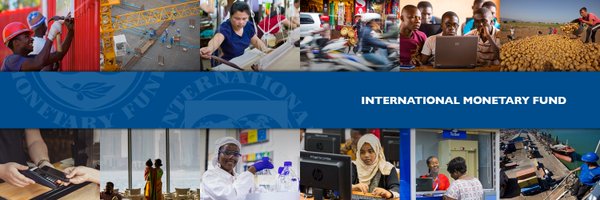 (AGENPARL) - Roma, 15 Ottobre 2022
(AGENPARL) - Roma, 15 Ottobre 2022(AGENPARL) – sab 15 ottobre 2022 [AM cover]
Dear Colleague, welcome to the October 14 briefing from the
2022 Annual Meetings
In this special edition of the Weekend Read and the last of our briefings from this year’s annual meetings, we spotlight a call by the IMFC for Russia’s invasion of Ukraine to cease and for closer multinational cooperation and coordination, the IMF’s global policy agenda, a debate that underscored the challenges facing economies of all incomes levels, and the economic prospects for the world’s different regions.
—————————————————————
The International Monetary and Financial Committee, which provides strategic direction to the IMF, concluded a meeting on Friday with a call to stop Russia’s invasion of Ukraine. At a subsequent press briefing, Nadia Calviño, Spain’s economy minister and chair of the IMFC, said “peace is the most important economic policy tool right now.”
The IMFC also called for an urgent deepening of multilateral cooperation and, in coordination with global bodies and partners, agreed to work together to overcome the food crisis, including by lifting restrictions on exports of food and fertilizers.
[spacer]
—————————————————————
The IMF is working with its 190 members on these challenges, Georgieva noted. Since the pandemic began, the Fund has provided $260 billion in financial support to 63 countries; since Russia’s invasion of Ukraine, the Fund has supported 18 new and augmented programs with close to $90 billion.
The Resilience and Sustainability Trust—the Fund’s first ever long-term financing instrument to support the transformation of economies—is now operational, with pledges of $40 billion. And a Food Shock Window has been opened to provide rapid financing for urgent needs.
Questions from the press focused on inflation, the food crisis, fiscal-monetary coherence, as well as several country issues.
[spacer]
[IMFC Urges End to Russia’s Invasion]
Monetary and fiscal policy must work together, at the national and international levels, so as not to make matter worse, said Cambridge University’s Mohamed El-Erian. “Unfortunately, policymakers have amplified volatility.”
Mark Carney, the UN’s special envoy for climate action and a former governor of the Bank of England, underscored importance of strong institutions and credible policies at a time of persistent inflation. “Mistakes will be punished,” he said.
Emerging market and developing economies are under particular stress as global interest rates rise.
Nigeria’s finance minister, Zainab Ahmed, said debt-servicing costs were increasing but the country was acting early to manage its liabilities by stretching out maturities. “We can’t just stand still when we see the risks coming.”
[spacer]
—————————————————————
Governments are showing greater awareness of the power of finance to accelerate the transition, he said. The focus now must be on action today. “Making a commitment for 2050 is great, but it’s not going to stop emissions now.” If the world proceeds on the current trajectory, climate will pass a tipping point by 2030 or 2035.
More transition finance is needed, but it’s not as simple as pulling away from coal and investing in a solar farm. Materials like cement, plastics, and steel are needed for daily living—and for the urbanization of emerging markets, he said. Countries need to catalyze investment in technologies for a gradual transition.
“That is the heart of transition—it is about moving from brown to lighter shades of brown, to lighter shades of green and eventually all green.”
—————————————————————
Nearly 24 percent of the world’s adult population remains unbanked. Central Bank Digital Currencies could potentially bridge this gap, but significant policy, regulatory, design, and financial literacy challenges remain unresolved.
But CBDCs can’t solve every challenge in financial inclusion, said IMF’s Deputy Managing Director, Bo Li. Cecilia Skingsley, BIS’ Innovation Hub head, added: “CBDCs needs to go in a package to support awareness and generally when it comes to digital technologies…the private sector and the public sector have to walk hand in hand.”
[spacer]
NUMBER OF THE DAY
Since the pandemic began, the IMF has provided financial support to 93 countries for a total of around $260 billion.
COUNTRIES

